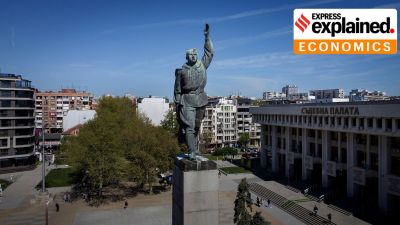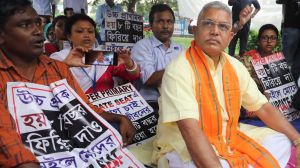1 ADONIS. Born in Syria, Ali Ahmed Said spent his most creative years in Beirut. His life mirrors the struggle, the optimisms and the dashed hopes of Arab intellectuals. In 1956, he moved to Lebanon after having suffered imprisonment in Syria. His lifelong struggle has been to reconcile the inherited legacy of the Arabs with western modernity. As Fouad Ajami sums up Adonis8217;s convictions in a most evocative, heart-tugging account in The Dream Palace of the Arabs: 8220;Modernity 8212; real and living 8212; will have a chance when the repressed yearnings of this large and silent Arab civilisation are released, when people write new things, when they are bold in the face of prohibitions.8221; A braveness, an erudite courage shines through Adonis8217;s poetry, but a sense of hopelessness is evident. From 8216;Desert8217; 1982: The flower that tempted the wind to carry its perfume/ Died yesterday./ The sun no longer rises/ It covers its feet with straw/ And slips away8230;
2 HARUKI MURAKAMI. His works are so difficult to categorise 8212; in comparison with the Japanese masters and in the context of other urban noir novelists 8212; that it never fails to surprise that his Tokyo stories evoke a place we all find eerie familiarity with. Murakami is most of all the primary chronicler of urban drift. His characters are conspicuously cosmopolitan Beat writers, Beatles tracks, Greek vacations, unrooted, and given to fascination and connections with a very normal supernatural. In his most popular book A Wild Sheep Chase, evil sheep invade an urbanite8217;s world. In Sputnik Sweetheart, the main character disappears without trace, she slips to the other side of consciousness. In Underground, his nonfiction inquiry into the sarin attack on Tokyo8217;s subway, the real world underpinnings of his fiction are illuminated.

3 ORHAN PAMUK. He is the uneasy inheritor of two legacies: Turkey8217;s old, but suppressed traditions and history, and Ataturk8217;s stern modernity. In his new novel Snow Islamism and secularism make their cases 8212; and in the uncertain, shifting balance between the two forces is profiled the critical juncture at which his country now stands. Pamuk8217;s most popular book so far 8212; My Name is Red 8212; is a more subtle act of reclamation. On surface, it is a murder mystery set amongst the lives of miniaturists during the Ottoman period.
































